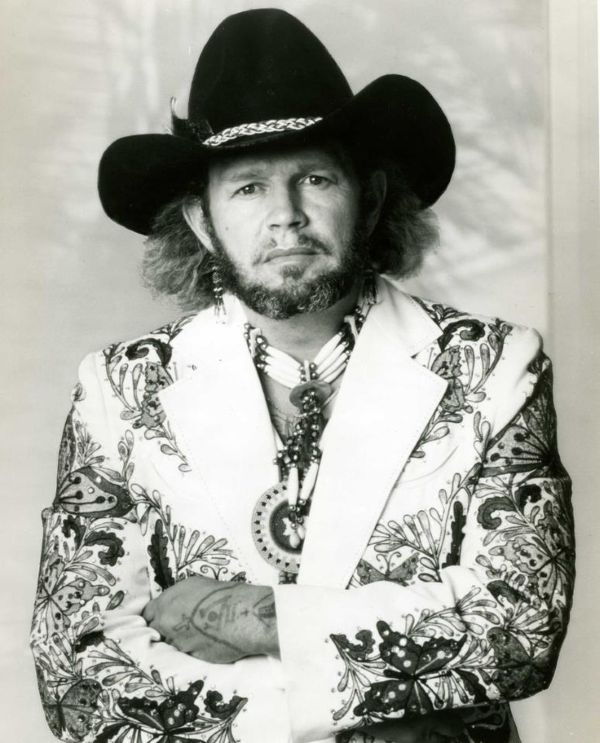David Allan Coe stands as a significant figure in country music, notable for his unconventional style, robust voice, and candid songwriting. Over the decades, Coe cultivated a loyal fan base, but this article delves into the financial aspects of life, specifically net worth, which reflects both triumphs and tribulations in a career marked by creativity and struggles.
Early Life and Upbringing
Born on September 6, 1939, in Akron, Ohio, David Allan Coe’s upbringing was anything but ordinary. Facing a tumultuous childhood, he spent considerable time in reform schools, followed by incarceration.
During his time in prison, he unearthed musical talents and discovered a passion for songwriting. Music emerged as a lifeline, steering him away from a life of hardship.
Upon release, he pursued his dreams by relocating to Nashville, Tennessee. Armed with little more than determination, he lived in the car while performing on the streets. It was not long before dedication bore fruit; he signed with Plantation Records and released his debut album, Penitentiary Blues, in 1970.

Source: https://countrylasvegas.com/
Rise to Fame and Financial Success
David Allan Coe’s significant breakthrough occurred in the 1970s with chart-topping hits such as “You Never Even Called Me by My Name” and “Longhaired Redneck.” These songs not only cemented his status in the outlaw country music scene but also showcased his songwriting prowess.
He was behind major hits like “Would You Lay With Me (In a Field of Stone)” for Tanya Tucker and “Take This Job and Shove It” for Johnny Paycheck, both contributing to ongoing financial success through consistent royalty payments.
Coe’s net worth, estimated to be between $1.5 million and $2 million, illustrates a career filled with commercial milestones, achieved through a collection of albums and relentless touring. He has released 41 studio albums throughout his career, ensuring a steady stream of revenue related to music distribution and merchandise sales.
Income Sources and Touring
Coe’s financial strength primarily arose from various sources of income. Album sales, streamed music, and songwriting royalties formed the backbone of net worth. Notably, the timeless appeal of the catalog meant that he continued to earn money long after initial releases.
However, live performances stood out as a cornerstone of income generation. Regular touring and concert appearances allowed him to engage with his dedicated fanbase directly, providing additional financial support to his career during fluctuations in the music industry.
Challenges: Legal and Financial Setbacks
Like many artists, David Allan Coe faced numerous challenges throughout his career, which significantly impacted his financial situation. In 2015, he pleaded guilty to failing to pay taxes on income from over 100 concerts conducted between 2008 and 2013. Instead of addressing tax liabilities, he directed funds toward other debts and gambling losses.
This legal issue culminated in a considerable financial burden; a court mandated that he pay nearly $1 million to the IRS in addition to a three-year probation period. These struggles serve as a stark reminder of how quickly obstacles can interfere with financial stability, even for established musicians.
Legacy and Cultural Impact
Despite the fluctuations in financial standing and legal troubles, David Allan Coe’s legacy in country music remains formidable. His unapologetic approach to songwriting and performance left an indelible mark on the genre, influencing countless artists who followed.
While net worth may not place him among the wealthiest musicians in the industry, the significance of his contributions to music and culture transcends mere financial metrics. Coe’s life story exemplifies a journey characterized by resilience, talent, and an enduring flair for artistic expression.
Conclusion
The financial narrative surrounding David Allan Coe is as intricate as the songs he has penned. From a challenging childhood and the tumult of outlaw persona to a career defined by hits and hardships, this legacy reflects the essence of living authentically in the face of adversity.
His net worth, while illustrative of professional achievements, pales in comparison to the cultural impact he has made in country music. Coe’s story serves as an inspiring chapter in the broader landscape of American music, revealing the complexities of artistry intertwined with the realities of financial survival.

Welcome to the world of Chef Gary! Meet Chef Gary, a culinary maestro whose journey from Indonesia to the United States has been nothing short of extraordinary. Immigrating in the early 2000s, Chef Gary began his culinary career as a Sushi Chef at renowned establishments such as Japonais Restaurant in Chicago, followed by stints at Benihana and Ginza in Indiana.
With a passion for perfection and a dedication to his craft, Chef Gary’s career blossomed as he made his mark in the Sunshine State, serving as the Head Sushi Chef at Modern Asian restaurants in Palm Beach. However, his two-year sojourn in New Delhi, India, shaped his culinary prowess, propelling him to the prestigious role of Executive Chef at Nehru Place – Benihana.
